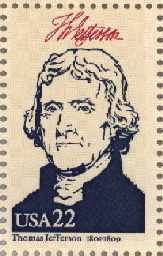
To Diodati a Paris, ce 3'me. Aout 1789
Je viens de recevoir, mon chere Monsieur, l'honneur de votre lettre du 24. Juillet. La peine avec laquelle je m'exprime en Fransois feroit que ma reponse seroit bien courte s'il ne m'etoit pas permis de repondre que dans cette langue. Mais je ssais qu'avec quelque connoissance de la langue Angloise vous meme, vous aurez une aide tres suffisante dans Madame la comtesse que j'ose prier d'ajouter a ses amities multipliees devers moi celle de devenir l'interprete de ce que vais ecrire en ma propre langue, et qu'elle embellira en la rendant en Fransois. I presume that your correspondents here have given you a history of all the events which have happened. The Leyden gazette, tho' it contains several inconsiderable errors, gives on the whole a just enough idea. It is impossible to conceive a greater fermentation than has worked in Paris, nor do I believe that so great a fermentation ever produced so little injury in any other place. I have been thro' it daily, have observed the mobs with my own eyes in order to be satisfied of their objects, and declare to you that I saw so plainly the legitimacy of them, that I have slept in my house as quietly thro' the whole as I ever did in the most peaceable moments. So strongly fortified was the despotism of this government by long possession, by the respect & the fears of the people, by possessing the public force, by the imposing authority of forms and of faste, that had it held itself on the defensive only, the national assembly with all their good sense, would probably have only obtained a considerable improvement of the government, not a total revision of it. But, ill informed of the spirit of their nation, the despots around the throne had recourse to violent measures, the forerunners of force. In this they have been completely overthrown, & the nation has made a total resumption of rights, which they had certainly never before ventured even to think of. The National assembly have now as clean a canvas to work on here as we had in America. Such has been the firmness and wisdom of their proceedings in moments of adversity as well as prosperity, that I have the highest confidence that they will use their power justly. As far as I can collect from conversation with their members, the constitution they will propose will resemble that of England in it's outlines, but not in it's defects. They will certainly leave the king possessed completely of the Executive powers, & particularly of the public force. Their legislature will consist of one order only, & not of two as in England: the representation will be equal & not abominably partial as that of England: it will be guarded against corruption, instead of having a majority sold to the king, & rendering his will absolute: whether it will be in one chamber, or broke into two cannot be foreseen. They will meet at certain epochs & sit as long as they please, instead of meeting only when, & sitting only as long as the king pleases as in England. There is a difference of opinion whether the king shall have an absolute, or only a qualified Negative on their acts. The parliaments will probably be suppressed; & juries provided in criminal cases perhaps even in civil ones. This is what appears probable at present. The Assembly is this day discussing the question whether they will have a declaration of rights. Paris has been led by events to assume the government of itself. It has hitherto worn too much the appearance of conformity to continue thus independently of the will of the nation. Reflection will probably make them sensible that the security of all depends on the dependance of all on the national legislature. I have so much confidence on the good sense of man, and his qualifications for self-government, that I am never afraid of the issue where reason is left free to exert her force; and I will agree to be stoned as a false prophet if all does not end well in this country. Nor will it end with this country. Hers is but the first chapter of the history of European liberty. The capture of the Baron Besenval is very embarrassing for the States general. They are principled against retrospective laws, & will make it one of the corner stones of their new building. But it is very doubtful whether the antient laws will condemn him, and whether the people will permit him to be acquitted. The Duke de la Vauguyon also & his son are taken at Havre. -- In drawing the parallel between what England is, & what France is to be I forgot to observe that the latter will have a real constitution, which cannot be changed by the ordinary legislature; whereas England has no constitution at all: that is to say there is not one principle of their government which the parliament does not alter at pleasure. The omnipotence of parliament is an established principle with them. -- Postponing my departure to America till the end of September I shall hope to have the pleasure of seeing you at Paris before I go, & of renewing in person to yourself & Madame la Comtesse assurances of those sentiments of respect & attachment with which I have the honor to be Dear Sir your most obedient humble serv't. P. S. It is rumored & beleived in Paris that the English have fomented with money the tumults of this place, & that they are arming to attack France. I have never seen any reason to believe either of these rumors. |
